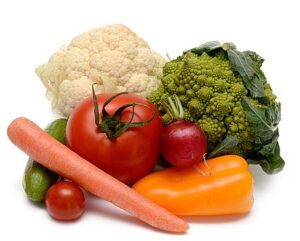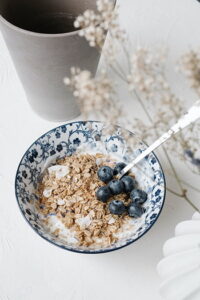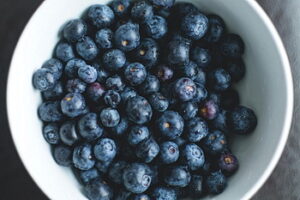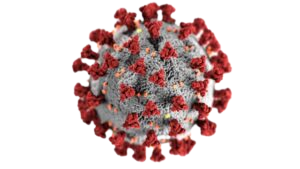| We start them at a young age!
You won’t be disappointed with the authentic New York taste and freshness.
|
How to Stay Safe from COVID
The Top 5 Reasons You Should Drink More Tea
Healthy Bagels
How Our Kettle Cooked Bagels are Made!
 Continuing on our binge of healthy items at the bagel store, we have so spoken about eating healthy foods and what healthy foods are available at the bagel store, but we have not touched specifically on healthy bagels! That’s right. Healthy bagels!
Continuing on our binge of healthy items at the bagel store, we have so spoken about eating healthy foods and what healthy foods are available at the bagel store, but we have not touched specifically on healthy bagels! That’s right. Healthy bagels!
This article describes how bagels fit into a healthy diet and gives tips on how you can maximize their nutritional value. Here is everything you need to know about bagels, including what people say about incorporating them into a nutritional diet. Knead the dough, form a circle with a hole in the middle, then cook and bake the bagels.
The nutritional content of bagels can vary widely, with countless varieties made from an assortment of ingredients. In general, bagels are made from whole foods which are healthy in their own right. The simplest bagel is made from a mixture of refined wheat flour, salt, water, and yeast.
Bagels can be healthier than breakfast pastries, such as croissants and donuts because they contain less fat. The exact nutritional value of a bagel depends on the ingredients and toppings used. While its value can vary depending on the variety, bagels are a good source of energy and carbohydrates as well as small to medium amounts of protein.
 Whole grain bagels contain more vitamins, minerals, and fiber than regular bagels. Bagels that are billed as wholemeal are made from 100 percent wholemeal flour, but you can also eat standard bagels made from processed flour. However, do not assume that they always contain whole grains.
Whole grain bagels contain more vitamins, minerals, and fiber than regular bagels. Bagels that are billed as wholemeal are made from 100 percent wholemeal flour, but you can also eat standard bagels made from processed flour. However, do not assume that they always contain whole grains.
When you buy bagels, it is best to choose from the whole food options: flour, yeast, salt, barley malt, and eggs. Given all these options, it can be difficult to decide which bagels to buy if you want to eat healthily.
Eating Healthy at Cino’s Bagels

No way you say? At a bagel store? Because you immediately become emersed in the thought of bagels and the calories that accompany them but did you ever think about the food items you can eat that are low on calories and also healthy for your body and brain? With over 30 years of baking experience, let’s see what healthy treats Cinos can do for you!
Yogurt Parfait
Packed with protein, fiber, calcium, iron, and vitamin C, how can you go wrong? This tasty breakfast (also as a snack) contains blueberries, strawberries, granola, and of course yogurt.
OK, we know. Most of these parfaits do have some sugar content, but if you are not that concerned about your weight and even if you are, the calorie content is not that much to really be concerned about, and in general, the health benefits can outweigh the negative; however, it really is up to you – the individual to make the final decision.
Let’s start with some blueberries and strawberries (nutrients discussed in the Fresh Fruits section) for your parfait and a little granola to the top.
What is Granola?

Granola is a very high fiber filling food. It can fill your stomach so you don’t feel hungry for more calorie-ridden snacks. This is referred to as satiation. Granola contains oats and whole grains, which help you not just maintain weight but are also loaded with antioxidants, proteins, healthy fats, and micronutrients.
Improves Blood Pressure
Blood pressure problems? Dig into that granola let your blood run (in a healthy way of course). Granola has been found in studies that it can help with hypertension.
Lowers Cholesterol
The oats in granola contain beta-glucan, which studies have shown that these oats help to reduce “bad” cholesterol (LDL) levels. This can help in reducing the possibility of heart disease.
Fresh Fruit
You don’t have to have a parfait to enjoy some healthy low-calorie foods. Have a feast on fresh blueberries, strawberries, and bananas along with your wake me up coffee or cappuccino.
Here are the benefits of eating fresh fruit:
Blueberries

This superfood is packed with antioxidants, which is a healthy element that attacks free radicals and free radicals is not something that you want in your body.
Blueberries are known to have one of the highest antioxidant capacities compared to other fruits and vegetables. The benefits of acquiring antioxidants on a daily basis help to lower the risk of heart disease and brain diseases, as well as help people with stress and anxiety.
Strawberries
Fiber is a welcome ingredient here, as well as fighting oxidative stress (the result of free radicals), which, like blueberries help to reduce the risk of illnesses such as heart disease and cancer.
In Closing
These are just a sample of healthy foods Cinos can provide. We didn’t even tell you about our veggie sandwiches. Why not drop by and check it out? And don’t forget to have a cup of our freshly made cappuccino!



 It’s no surprise when we say that COVID-19 is all over us and still, to this day, it is still spreading. Now quicker than ever, thanks to the Omicron vibrant! Fortunately, even though this strain is the most contagious that is infecting us now, it is also the most passive. For most of us, someone we know has already been infected including possibly you as well.
It’s no surprise when we say that COVID-19 is all over us and still, to this day, it is still spreading. Now quicker than ever, thanks to the Omicron vibrant! Fortunately, even though this strain is the most contagious that is infecting us now, it is also the most passive. For most of us, someone we know has already been infected including possibly you as well. Easy, GET VACCINATED! When you are
Easy, GET VACCINATED! When you are 


